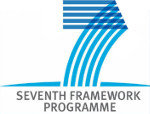Heterogeneous resource allocation can change social hierarchy in public goods games
Meloni, S. (Universidad de Zaragoza) ; Xia, C.Y. ; Moreno, Y. (Universidad de Zaragoza)
Resumen: Public goods games (PGGs) represent one of the most useful tools to study group interactions. However, even if they could provide an explanation for the emergence and stability of cooperation in modern societies, they are not able to reproduce some key features observed in social and economical interactions. The typical shape of wealth distribution—known as Pareto Law-and the microscopic organization of wealth production are two of them. Here, we introduce a modification to the classical formulation of PGGs that allows for the emergence of both of these features from first principles. Unlike traditional PGGs, where players contribute equally to all the games in which they participate, we allow individuals to redistribute their contribution according to what they earned in previous rounds. Results from numerical simulations show that not only a Pareto distribution for the pay-offs naturally emerges but also that if players do not invest enough in one round they can act as defectors even if they are formally cooperators. Our results not only give an explanation for wealth heterogeneity observed in real data but also point to a conceptual change on cooperation in collective dilemmas.
Idioma: Inglés
DOI: 10.1098/rsos.170092
Año: 2017
Publicado en: Royal Society Open Science 4, 3 (2017), 170092 [11 pp.]
ISSN: 2054-5703
Factor impacto JCR: 2.504 (2017)
Categ. JCR: MULTIDISCIPLINARY SCIENCES rank: 17 / 64 = 0.266 (2017) - Q2 - T1
Factor impacto SCIMAGO: 1.237 - Multidisciplinary (Q1)
Financiación: info:eu-repo/grantAgreement/EC/FP7/317532/EU/Foundational Research on MULTIlevel comPLEX networks and systems/MULTIPLEX
Financiación: info:eu-repo/grantAgreement/ES/MINECO/FIS2014-55867-P
Tipo y forma: Artículo (Versión definitiva)
Área (Departamento): Área Física Teórica (Dpto. Física Teórica)
 Debe reconocer adecuadamente la autoría, proporcionar un enlace a la licencia e indicar si se han realizado cambios. Puede hacerlo de cualquier manera razonable, pero no de una manera que sugiera que tiene el apoyo del licenciador o lo recibe por el uso que hace.
Debe reconocer adecuadamente la autoría, proporcionar un enlace a la licencia e indicar si se han realizado cambios. Puede hacerlo de cualquier manera razonable, pero no de una manera que sugiera que tiene el apoyo del licenciador o lo recibe por el uso que hace.
Exportado de SIDERAL (2019-07-09-12:01:11)
Visitas y descargas
Idioma: Inglés
DOI: 10.1098/rsos.170092
Año: 2017
Publicado en: Royal Society Open Science 4, 3 (2017), 170092 [11 pp.]
ISSN: 2054-5703
Factor impacto JCR: 2.504 (2017)
Categ. JCR: MULTIDISCIPLINARY SCIENCES rank: 17 / 64 = 0.266 (2017) - Q2 - T1
Factor impacto SCIMAGO: 1.237 - Multidisciplinary (Q1)
Financiación: info:eu-repo/grantAgreement/EC/FP7/317532/EU/Foundational Research on MULTIlevel comPLEX networks and systems/MULTIPLEX
Financiación: info:eu-repo/grantAgreement/ES/MINECO/FIS2014-55867-P
Tipo y forma: Artículo (Versión definitiva)
Área (Departamento): Área Física Teórica (Dpto. Física Teórica)
Exportado de SIDERAL (2019-07-09-12:01:11)
Enlace permanente:
Visitas y descargas
Este artículo se encuentra en las siguientes colecciones:
Artículos > Artículos por área > Física Teórica
Registro creado el 2017-05-02, última modificación el 2019-07-09
